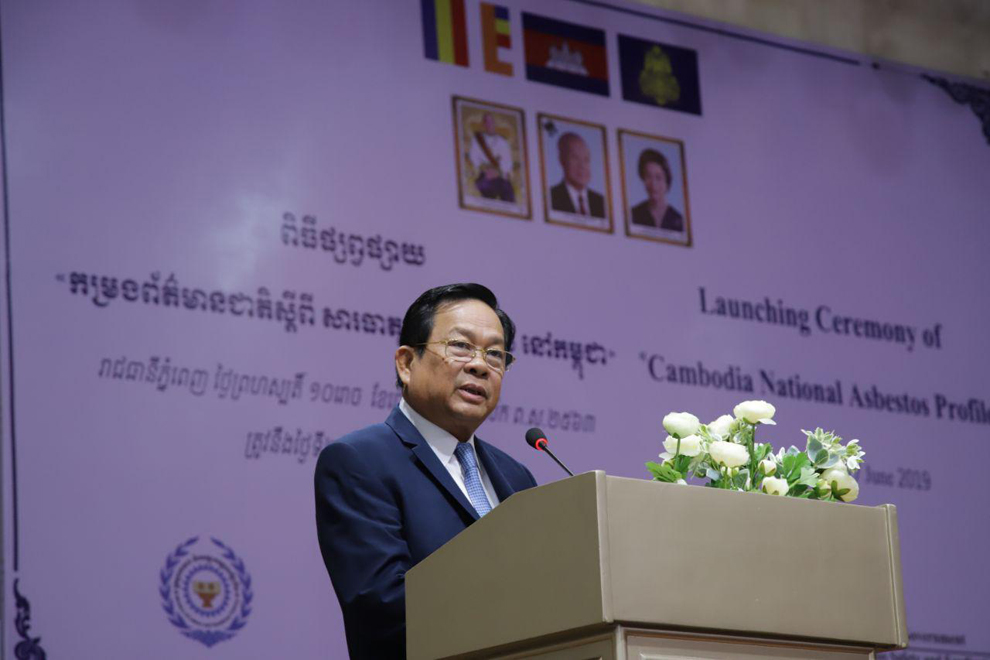
Ith Sam Heng, Minister of Labour and Vocational Training launched the first Cambodian National Asbestos Profile on Thursday. Supplied
Minister of Labour and Vocational Training Ith Sam Heng on Thursday launched the first Cambodian National Asbestos Profile, a document to aid policymakers, workers and consumers take action to prevent the environmental, health and economic costs of the continued use of products containing asbestos.
Some 300 senior government officials, diplomats, civil society organisations, national and international officials and specialists gathered at the launch to share information on asbestos use in Cambodia.
A specialist said asbestos inhalation has had a serious impact on health, causing, among other ailments, lung cancer, mesothelioma, ovarian cancer, laryngeal cancer, pleural effusions, pleural plaques and respiratory diseases.
The Cambodia National Asbestos Profile said asbestos is a fibre that is used to cheaply strengthen and fireproof other materials. The profile, launched on Thursday, has been developed over two years.
Sam Heng said at the launch that Cambodia does not yet have any specific regulations on asbestos use, but only the recognition that asbestos waste is dangerous.
“The leadership has actively participated, in a spirit of cooperation and high responsibility, in collecting data and making reports in the preparation of this important document."
“Updates will be made frequently and policies developed to meet the challenges and help plan and establish prioritised activities aimed at reducing the impact of asbestos,” he said.
Based on the analysis of 117 samples last year, asbestos was present in 53 per cent of the materials tested, including cement roof sheets, rope, brake pads, gaskets and insulation. Frictional materials contained the highest proportion of asbestos – up to 40 per cent in some cases.
Dr Leng Tong, the director of the Ministry of Labour and Vocational Training’s Department of Occupational Safety and Health, said Cambodia does not currently have the equipment to examine asbestos, so it must conduct further studies in order to manage it effectively.
He said most of the products containing asbestos are imported, largely from China and Thailand, and said it was good that Cambodia did not have its own mining or production facilities.
“It is an important subject right now, because our construction sector is booming, so a lot of construction materials are being used. If we don’t use proper materials, it affects workers’ health,” Tong said.
He said that once the government had compiled the relevant documents, it will organise training programmes for officials nationwide to share their knowledge with construction workers.
Building and Wood Workers Trade Union Federation of Cambodia president Sok Kin said the government does not seem to pay much attention to the benefits and health of construction workers.
“We represent construction workers. We are trying to reduce the effect on them. They are at work every day. Not much attention is paid to construction workers and it is negligent of the parties involved, especially the government and construction companies, and also some civil society organisations,” he said.














